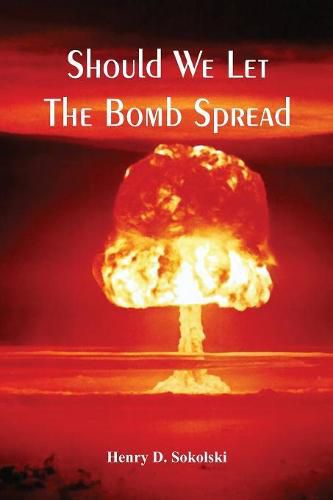Readings Newsletter
Become a Readings Member to make your shopping experience even easier.
Sign in or sign up for free!
You’re not far away from qualifying for FREE standard shipping within Australia
You’ve qualified for FREE standard shipping within Australia
The cart is loading…






This title is printed to order. This book may have been self-published. If so, we cannot guarantee the quality of the content. In the main most books will have gone through the editing process however some may not. We therefore suggest that you be aware of this before ordering this book. If in doubt check either the author or publisher’s details as we are unable to accept any returns unless they are faulty. Please contact us if you have any questions.
Nuclear deterrence and nonproliferation no longer enjoy the broad support they once did during the Cold War. Academics and security experts now question the ability of either to cope or check nuclear rogue states or terrorists. On the one hand, America’s closest allies–e.g., Japan and South Korea–believe American nuclear security guarantees are critical to their survival. If the United States is unwilling to provide Tokyo or Seoul with the assurance they believe they need, would it then not make sense for them to acquire nuclear forces of their own? On the other hand, with more nuclear-armed states and an increased willingness to use them, how likely is it that nuclear deterrence will work? This volume investigates these questions. In it, six experts offer a variety of perspectives to catalyze debate. The result is a rich debate that goes well beyond current scholarship to challenge the very basis of prevailing nonproliferation and security policies.
$9.00 standard shipping within Australia
FREE standard shipping within Australia for orders over $100.00
Express & International shipping calculated at checkout
This title is printed to order. This book may have been self-published. If so, we cannot guarantee the quality of the content. In the main most books will have gone through the editing process however some may not. We therefore suggest that you be aware of this before ordering this book. If in doubt check either the author or publisher’s details as we are unable to accept any returns unless they are faulty. Please contact us if you have any questions.
Nuclear deterrence and nonproliferation no longer enjoy the broad support they once did during the Cold War. Academics and security experts now question the ability of either to cope or check nuclear rogue states or terrorists. On the one hand, America’s closest allies–e.g., Japan and South Korea–believe American nuclear security guarantees are critical to their survival. If the United States is unwilling to provide Tokyo or Seoul with the assurance they believe they need, would it then not make sense for them to acquire nuclear forces of their own? On the other hand, with more nuclear-armed states and an increased willingness to use them, how likely is it that nuclear deterrence will work? This volume investigates these questions. In it, six experts offer a variety of perspectives to catalyze debate. The result is a rich debate that goes well beyond current scholarship to challenge the very basis of prevailing nonproliferation and security policies.